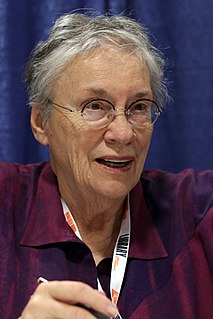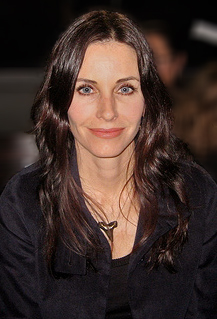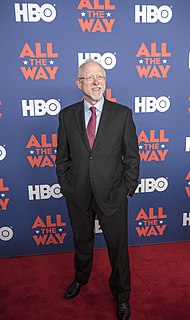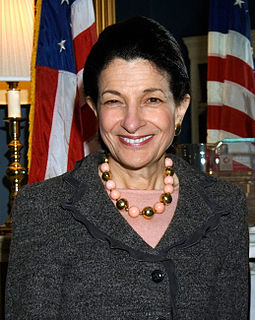Top 101 Polarized Quotes & Sayings - Page 2
Explore popular Polarized quotes.
Last updated on December 18, 2024.
The argument culture urges us to approach the world - and the people in it - in an adversarial frame of mind. It rests on the assumption that opposition is the best way to get anything done: The best way to discuss an idea is to set up a debate; the best way to cover news is to find spokespeople who express the most extreme, polarized views and present them as 'both sides'; the best way to settle disputes is litigation that pits one party against the other; the best way to begin an essay is to attack someone; and the best way to show you're really thinking is to criticize.
London in the '70s was a pretty catastrophic dump, I can tell you. We had every kind of industrial trouble; we had severe energy problems; we were under constant terrorist attack from Irish terrorist groups who started a bombing campaign in English cities; politics were fantastically polarized between left and right.
You have people saying two things that seem to contradict each other. One, that we live in a golden age of TV. The other, that television is dying. There's a reason for that. What we mean when we say it's dying is that it's already way past being fragmented into little chunks. Now it's being polarized into an aerosol mist.
I think subjectivity plays into everything. It's unavoidable; you couldn't avoid it if you tried. I think, potentially, a lot more commercial movies, it seems to be that the people making the films are trying to elicit the same reaction. I think a lot of the most interesting work in art and in films are often kind of polarized opinions and affect people in very different ways, which may be less successful commercially, but they elicit a dialogue that's quite interesting.
There's always new work to do. Adjusting to the rapid pace of technological change creates real challenges, seen most clearly in our polarized labor market and the threat that it poses to economic mobility. Rising to this challenge is not automatic. It's not costless. It's not easy. But it is feasible.
Mother Earth is the spirit of the Earth. Amaterasu is the spirit of the Sun, that is, the feminine aspect of the spirit of the Sun. The Sun is a male, but everything is polarized, everything has a male and a female part. And she is the feminine part of light. Relative to the Earth it is more of a male energy, but she is the energy that comes and moves through Mother Earth, to bring consciousness and life.
I don't necessarily have any designs in being in politics for the rest of my life. I don't necessarily think that this is the best thing for our country to have an environment so polarized that the political discourse is this aggressive and this nasty. I don't think it's a good thing. But until we see a sort of backing off from the Republicans that have created this environment, I don't see a reason why Democrats should hold off and act any differently.
If we choose only to expose ourselves to opinions and viewpoints that are in line to our own, we become more polarized, more set in our own ways. It will only reinforce and deepen the political divides in our country. But if we choose to actively seek out information that challenges our assumptions and beliefs, perhaps we can begin to understand where the people who disagree with us are coming from.
There is such a polarized discussion of economics among people like analysts, columnists, bloggers; often, they end up just saying that views other than their own should not even be discussed. I find that frustrating. There is no intellectual progress without considering lots and lots of different views.
Groups become more extreme and entrenched in their beliefs and polarized from others when members only exchange information that reinforces their views and filter out all else or never learn of alternatives. Thus they narrow their options, and magnify each other's prejudices and misconceptions. This trend leads to blind spots in decision making and to extreme behavior, even terrorism.
The United States needs serious change in its fiscal, entitlement, infrastructure, immigration, and education policies, among others. And yet a polarized and often paralyzed Washington has pushed dealing with these problems off into the future, which will only make them more difficult and expensive to solve.
I think if you look at where things are in this current political climate, you'll see that everything is polarized. Everyone has their own eco chamber that they can operate in; there aren't a lot of people interacting with each other. For me, with something like film, that's an opportunity to try to bridge those gaps.
Sometimes I look at where we've come to, and how much technology and advancement there is, and I can't believe that we're not this perfectly balanced, beautiful, peaceful society. I'm shocked that we're so deeply polarized, that there are people who want progress and they feel guilty for wanting progress, because it somehow seems un-American, because being American means staying ignorant and going backward.
There are those who would draw a sharp line between power politics and a principled foreign policy based on values. This polarized view - you are either a realist or devoted to norms and values - may be just fine in academic debate, but it is a disaster for American foreign policy. American values are universal.
Black pride. Gay pride. White, Anglo-Saxon Protestant pride. All of these things, you know, they're polarized, aren't they? The red and blue states. Christians, that's the most insidious aspect of it, giving into this great Christian image of America. That's the most frightening thing of all. Whereas in the past they're trying to find things that unite us, to minimize the differences. Whereas today there's this belief in empowerment and entitlement by maximizing differences. I'm not so sure that that's healthy.
But nirvana is a radical transformation of how it feels to be alive: it feels as if everything were myself, or as if everything---including "my" thoughts and actions---were happening of itself. There are still efforts, choices, and decisions, but not the sense that "I make them"; they arise of themselves in relation to circumstances. This is therefore to feel life, not as an encounter between subject and object, but as a polarized field where the contest of opposites has become the play of opposites.
London in the '70s was a pretty catastrophic dump, I can tell you. We had every kind of industrial trouble; we had severe energy problems; we were under constant terrorist attack from Irish terrorist groups who had started a bombing campaign in English cities; politics were fantastically polarized between left and right.
Immigration is the most difficult issue I've ever dealt with, and I've dealt with some tough issues: drones, gays in the military, WikiLeaks, Guantanamo. But immigration is hardest because there are so few people willing to talk and build consensus. Everybody's firmly made up their mind. It's a polarized issue.
Food can be utilized for economic reasons, like the grain embargo of Carter 40 years ago. You have a political decision, you are going to move the flow of food in a part of the world and not another part of the world. And certainly now, with the way the country is polarized and all that, you wouldn't want to have a French menu, with a French thing - you'd be crucified! Or anything like that. You have to be a real American and apple pie and this and that.
But at a time when our discourse has become so sharply polarized - at a time when we are far too eager to lay the blame for all that ails the world at the feet of those who think differently than we do - it's important for us to pause for a moment and make sure that we are talking with each other in a way that heals, not a way that wounds.
I understand why so many Americans are fed up with government. The 112th Congress was almost universally derided as the worst ever. It was the most polarized body since the end of Reconstruction, according to one study, and I grew embarrassed by its partisan bickering, inactivity, and refusal to address the vital challenges facing America.
The left think that this special place in the world, the United States of America, it just happened. It just is. And it's our responsibility, as those who are lucky and fortunate enough, to happen to have been born here. It is incumbent upon us to share that same luck and good fortune with everybody else. Otherwise we are mean, selfish, polarized, partisan, extremist, racist, sexist, bigot, homophobe, whatever.
I'm a firm believer that if you put together a good product that is just good policy, that is embraced by both sides so that it is seen as politically advantageous to the Republicans or Democrats, that even in this very polarized partisan world that you can advance legislation. I have to believe that, or I wouldn't want to get up every morning.
I'd go to conference after conference and it would essentially be the talking points. Either pro or con. It's amazing how polarized the tech conversation is. There's also this neurological fixation, the incessant wondering what the Internet's doing to our brain: "Does it make us stupid, does it make us distracted?" And then the other guys say, "No, it's making us smarter than ever, and better than ever, and more connected." And it's like, where is the economic and social context? Why is that rarely considered?
Then something fails and they're all out again, but DVD revenue is disappearing, you know, it's not disappearing but it's going off a cliff and what that's done is it's polarized the industry in a way that I've never seen before where studios are making less, they're bifurcating their choices where they're either going very, very big or they're just picking up a few rights on an acquisition basis or making really small things.
But it is daily tasks, daily acts of love and worship that serve to remind us that the religion is not strictly an intellectual pursuit, and these days it is easy to lose sight of that as, like our society itself, churches are becoming more politicized and polarized. Christian faith is a way of life, not an impregnable fortress made up of ideas; not a philosophy; not a grocery list of beliefs.





































